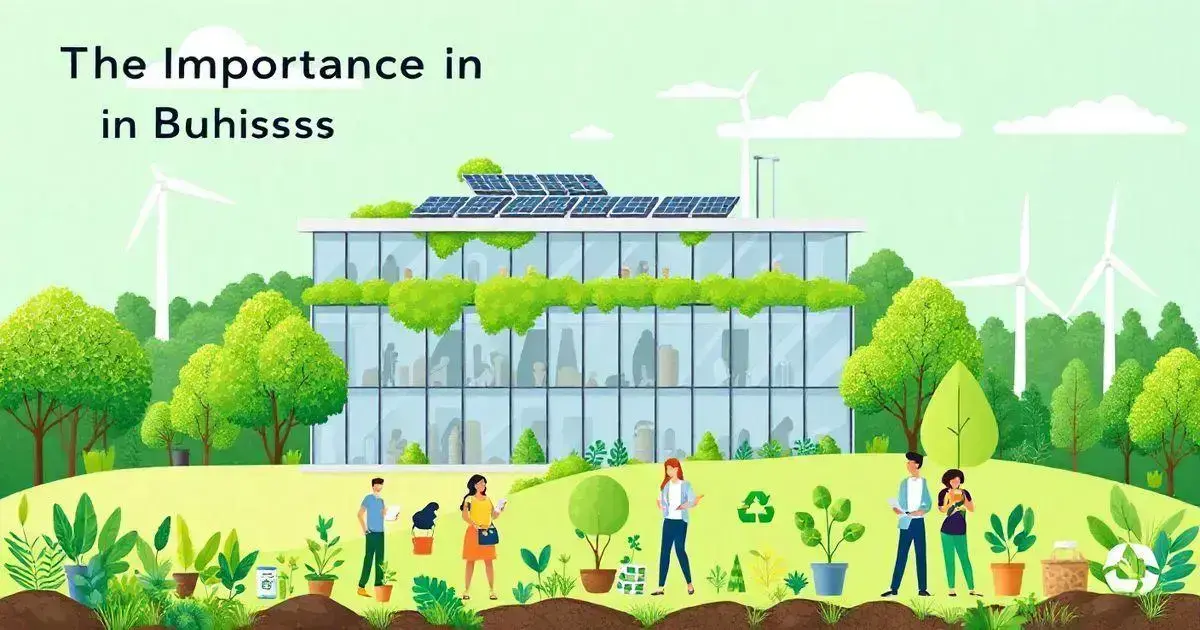Sustainable innovation practices are essential for tackling modern challenges such as climate change, resource depletion, and environmental degradation. As industries evolve, businesses must adopt eco-friendly solutions that balance economic growth with environmental responsibility. Embracing sustainability ensures long-term resilience while meeting the growing demand for greener alternatives.
Beyond environmental benefits, sustainable innovation strengthens a company’s market position and brand reputation. Consumers and investors are increasingly drawn to businesses that prioritize ethical and sustainable practices. Implementing energy-efficient technologies, reducing waste, and utilizing renewable resources can significantly enhance operational efficiency and profitability.
How can businesses successfully integrate sustainable innovation practices into their strategies? By exploring key approaches, emerging technologies, and industry success stories, companies can discover ways to drive innovation while positively impacting the planet.
Understanding Sustainable Innovation Practices
Understanding sustainable innovation practices is vital for businesses looking to make a positive environmental impact. These practices involve integrating eco-friendly approaches into every aspect of the business, from product design to supply chain management. Companies can adopt methods such as using renewable materials, reducing waste, and implementing energy-efficient processes.
An essential part of this approach is to foster a culture of sustainability within the organisation. This means encouraging employees to share ideas and engage in practices that promote sustainability. Investing in research and development focused on sustainability can lead to innovative products that not only meet customer needs but also minimise harm to the environment.
Moreover, collaborating with other organisations and stakeholders can enhance sustainable efforts. This collective approach can lead to the sharing of resources, knowledge, and technologies, amplifying the impact of sustainable innovation practices. Ultimately, understanding and implementing these practices is a step towards a more sustainable future for the business and the planet.
The Importance of Sustainability in Business

The importance of Sustainable Innovation Practices is paramount as they drive progress, enhance brand reputation, and create long-term value. By integrating sustainable strategies, businesses can reduce their environmental footprint, cut operating costs, and strengthen customer loyalty. As consumers become more environmentally conscious, companies that embrace Sustainable Innovation Practices are better positioned to attract a broader audience and build lasting relationships.
Incorporating Sustainable Innovation Practices into business models also leads to financial benefits. Energy-efficient operations, waste reduction, and eco-friendly initiatives help lower expenses while demonstrating a commitment to responsible business practices. This approach not only boosts profitability but also sets a company apart as a leader in ethical and sustainable innovation.
Furthermore, evolving regulatory frameworks increasingly emphasize sustainability. Businesses that proactively adopt Sustainable Innovation Practices are better equipped to comply with regulations, avoid penalties, and protect their reputation. By understanding the value of sustainability, companies can drive innovation, maintain a competitive edge, and contribute to a more sustainable future.
Key Examples of Innovative Sustainability
Key examples of innovative sustainability include companies that have embraced renewable energy solutions. For instance, some tech giants have invested in solar and wind energy to power their data centres, significantly reducing their carbon footprint.
Patagonia, the outdoor clothing brand, leads the way in sustainability by using recycled materials in their products and supporting environmental causes.
Additionally, the automotive industry is witnessing a shift with companies like Tesla leading the charge in electric vehicle technology. These vehicles produce zero emissions, showcasing a practical approach to sustainable transport. Other manufacturers are adapting by incorporating hybrid and electric options into their line-ups, answering consumer demand for less polluting vehicles.
Furthermore, food companies are also innovating with sustainability in mind. For example, some brands are adopting vertical farming techniques that use less land and water while producing fresh produce closer to urban areas, thus reducing transportation emissions.
These examples illustrate how businesses across various sectors are not just talking about sustainability but are actively implementing creative solutions to make a real difference in their operations and product offerings.
Challenges in Implementing Sustainable Practices

Challenges in implementing sustainable practices are growing concerns for many businesses today. One of the main hurdles is the initial cost of investment for sustainable technologies and practices. While these investments often lead to long-term savings, the upfront costs can be daunting for many organisations. Budget constraints can limit options, making it difficult to prioritise sustainability in financial planning.
Another significant challenge is employee engagement. For sustainability practices to be successful, all employees must understand and commit to these changes. Resistance to change can arise, especially in long-established organisations. It is crucial to provide proper training and effectively communicate the benefits of sustainability to overcome this hurdle.
Additionally, regulatory compliance can be complex and vary by region. Businesses must navigate various laws and regulations related to sustainability, which can be confusing. Staying updated on local and global regulations is essential to ensure compliance and avoid penalties.
Finally, measuring the impact of sustainability initiatives can also pose challenges. Businesses need effective metrics and tools to assess their progress. Without clear measurement, it can be difficult to demonstrate success or identify areas for improvement.
The Role of Technology in Sustainable Solutions
The role of technology in sustainable solutions is becoming increasingly significant as businesses strive to reduce their environmental impact. Innovations in technology are enabling companies to develop more efficient processes and products. For example, the use of smart sensors can help monitor energy consumption and waste levels in real-time, allowing organisations to make quick adjustments and save resources.
Furthermore, technologies such as artificial intelligence and machine learning are being implemented to predict trends and improve decision-making related to sustainability. These technologies can analyse vast amounts of data to identify inefficiencies, enabling businesses to optimise their operations and reduce waste.
Cloud computing also plays a vital role in sustainability. By storing and processing data off-site, companies can significantly lower their energy consumption and reduce the need for physical hardware. This shift not only enhances operational efficiency but also decreases the overall carbon footprint of the organisation.
Moreover, the development of sustainable materials through technology is transforming industries. Advances in material science are leading to the creation of eco-friendly alternatives to traditional products, helping businesses meet their sustainability goals while meeting consumer demands.
Future Trends in Sustainable Innovation

Future trends in sustainable innovation are shifting rapidly as technology and consumer preferences evolve. One significant trend is the increased focus on circular economy models. Companies are beginning to design products that can be reused, refurbished, or recycled, reducing overall waste. This approach not only benefits the environment but can also lead to cost savings and new revenue streams.
Another important trend is the use of blockchain technology to enhance transparency in supply chains. By providing detailed records of materials and processes, consumers can make informed decisions about the sustainability of their purchases. Brands that adopt blockchain can build trust and improve their ethical practices.
Furthermore, the rise of green finance is shaping the future of sustainable innovation. Investors are increasingly prioritising environmentally friendly projects, leading to greater funding opportunities for businesses that focus on sustainability. This trend encourages innovation and accelerates the development of green technologies.
Lastly, advancements in renewable energy technologies, like solar and wind, will continue to drive sustainability efforts. As these technologies become more affordable and efficient, a growing number of businesses will make the switch, significantly reducing their carbon footprints.
Embracing Sustainable Innovation
In today’s world, adopting sustainable innovation practices is essential for businesses aiming for long-term success. By understanding the importance of sustainability, overcoming challenges, and leveraging technology, companies can make significant strides in reducing their environmental impact.
As we have explored, the role of technology is a key factor in these efforts. Innovations such as circular economy models, blockchain for transparency, and advancements in renewable energy pave the way for a sustainable future.
Furthermore, recognising future trends can empower businesses to stay ahead of the curve, enabling them to attract conscious consumers and investors alike. Embracing sustainable innovation is not just a trend, it is a responsibility that companies must take to ensure a healthier planet for future generations.
Check out our article on Innovation in Technology to explore the latest advancements and how they are transforming industries and daily life.
